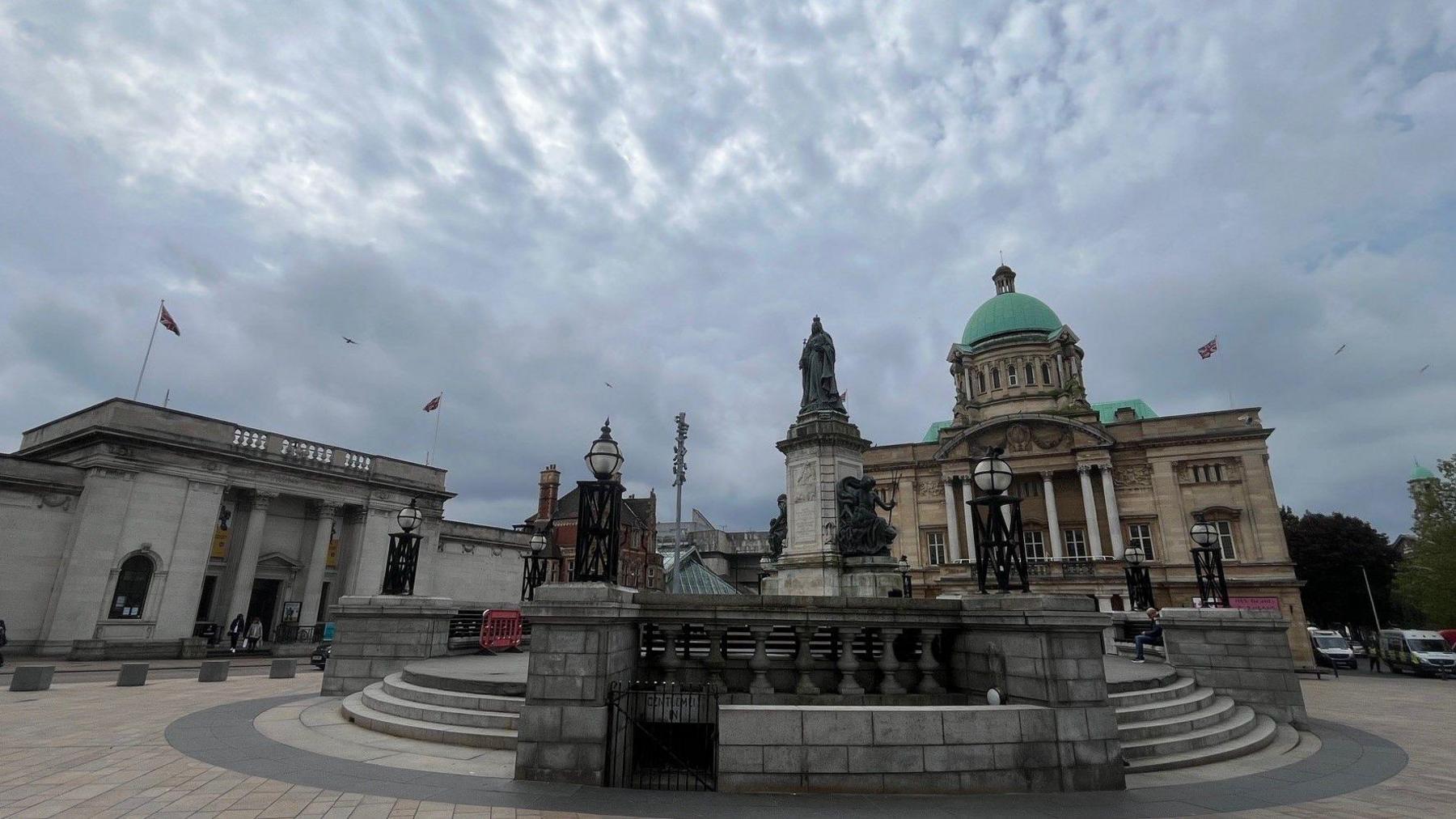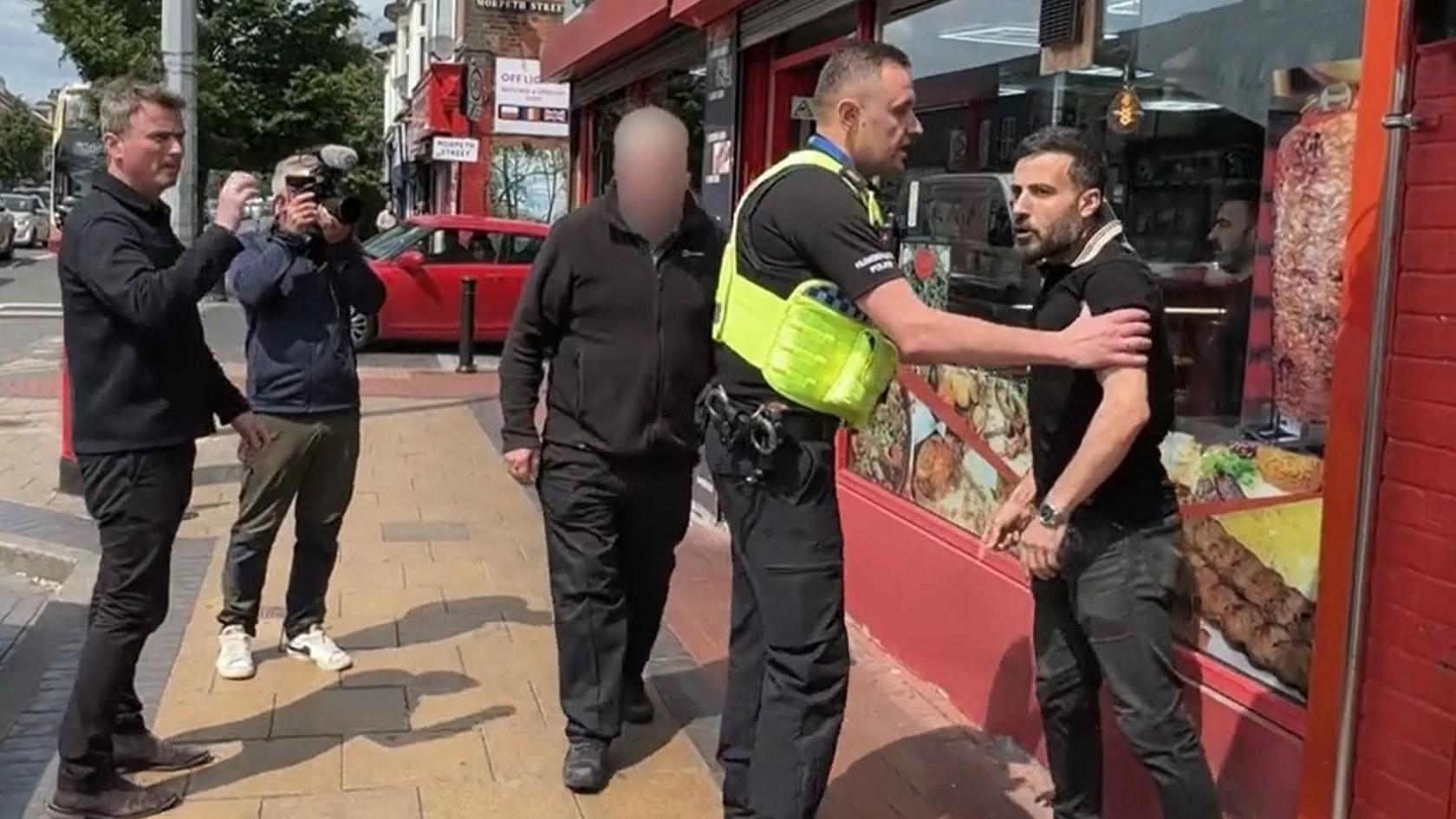Vape shops or empty shops? The high street dilemma
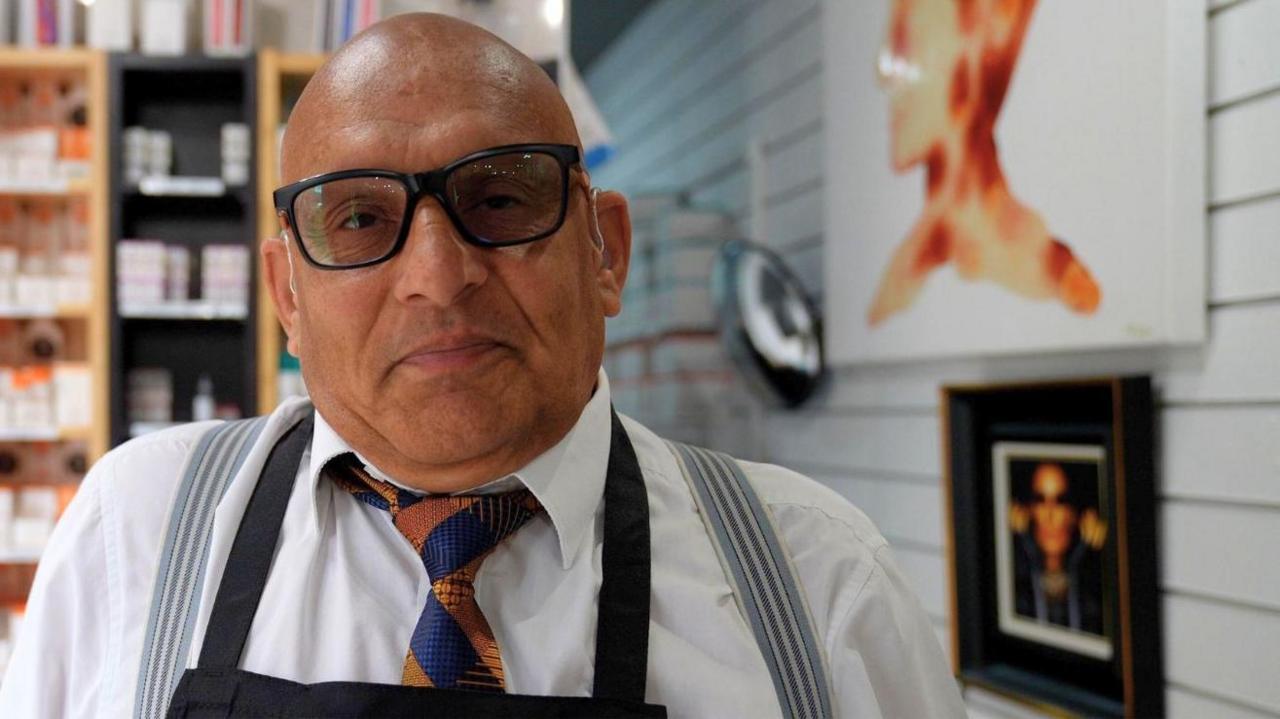
Maurice D'John, whose shop is at one end of a long line of empty units, says independent shops need more support
- Published
Like so many others, Scunthorpe's High Street has seen better days. I've walked it many times over the past 20 years as a reporter, but this time, I've been counting.
Among the numerous charity shops and mobile phone repairers, I spot five vape shops, four pawnbrokers, two nail bars, three Turkish barbers and four gambling spots in the street and surrounding pedestrian precinct.
And yet, amid these stores, what really strikes me are the number of closed steel shutters and signs declaring: "Prime shop to let." I count 37.
Now, the government says it wants to "restore pride" to high streets by giving communities "unprecedented new powers" to "seize" boarded-up premises, save derelict pubs and block unwanted stores.
So, will it make a difference in Scunthorpe?
Maurice D'John, who has run a gallery and picture-framing shop in the town for more than a decade, says he welcomes the idea.
But he fears that without other incentives, banning certain types of businesses will lead to more stores lying empty.
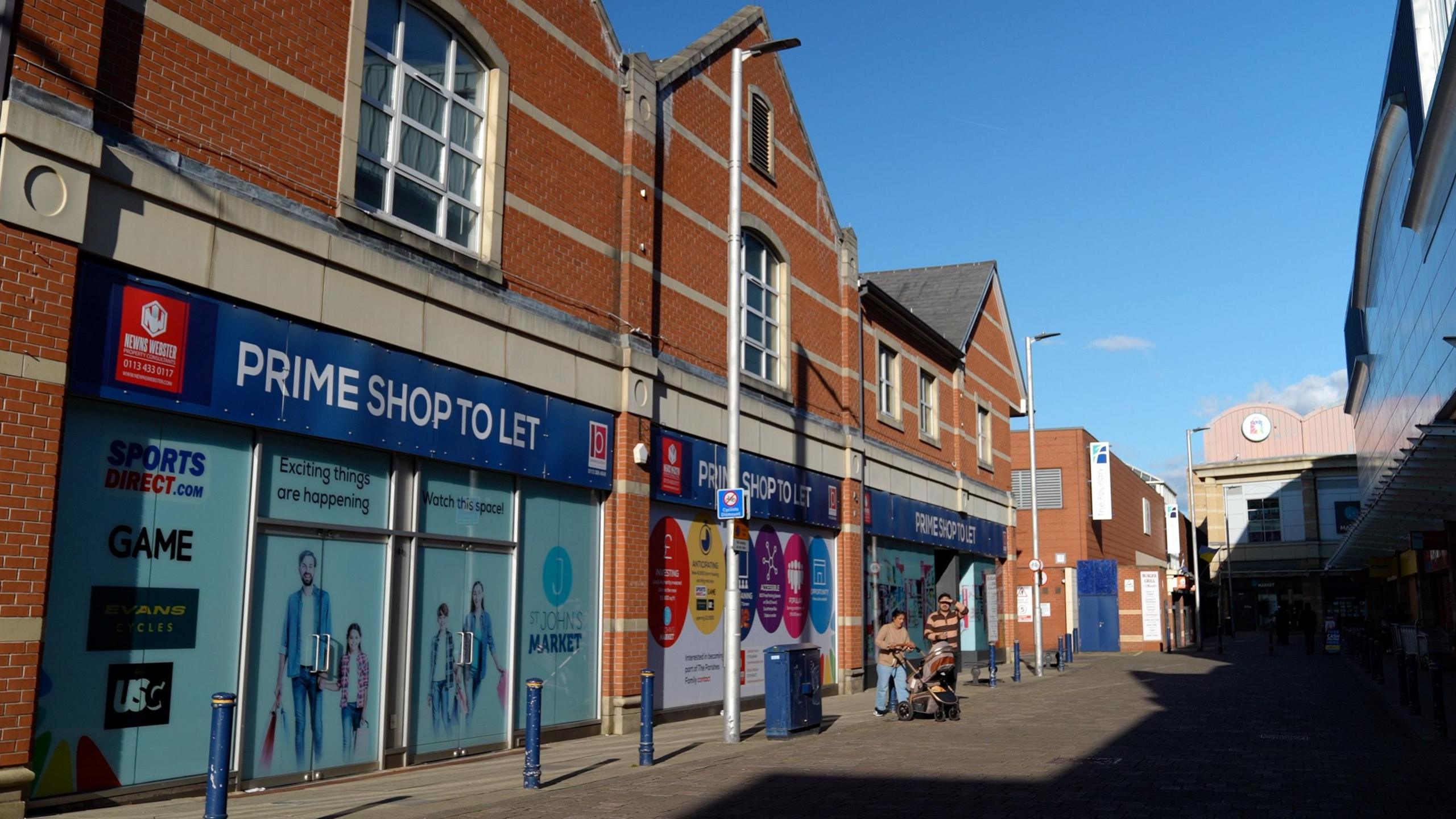
Empty stores in Scunthorpe's shopping precinct
Like others I spoke to here in North Lincolnshire, he feels the shake-up will only work if backed by measures such as lower business rates and taxes, to encourage people to set up more independent shops.
"It makes a lot of sense to get rid of these shops, but what are you going to put in place of them?" asks Mr D'John, whose own store lies at one end of a long line of empty units.
"All you are going to have is more empty shops on the high street, unless there's an incentive for small businesses to come in.
"If you get more retailers in, then the high street will improve."
Prime Minister Sir Keir Starmer announced the plans, external on Thursday, alongside "Pride in Place" funding for 330 communities.
Councils are set to be given powers to take over empty buildings and turn down more "betting shops, vapes stores and fake barbers", according to the government. There will also be a community right-to-buy scheme, designed to safeguard pubs and open up land for new parks.
Steve Reed, the housing and communities secretary, says the measures will put power into the hands of the people so they can "decide how best to restore pride in their neighbourhoods, not us in Westminster".
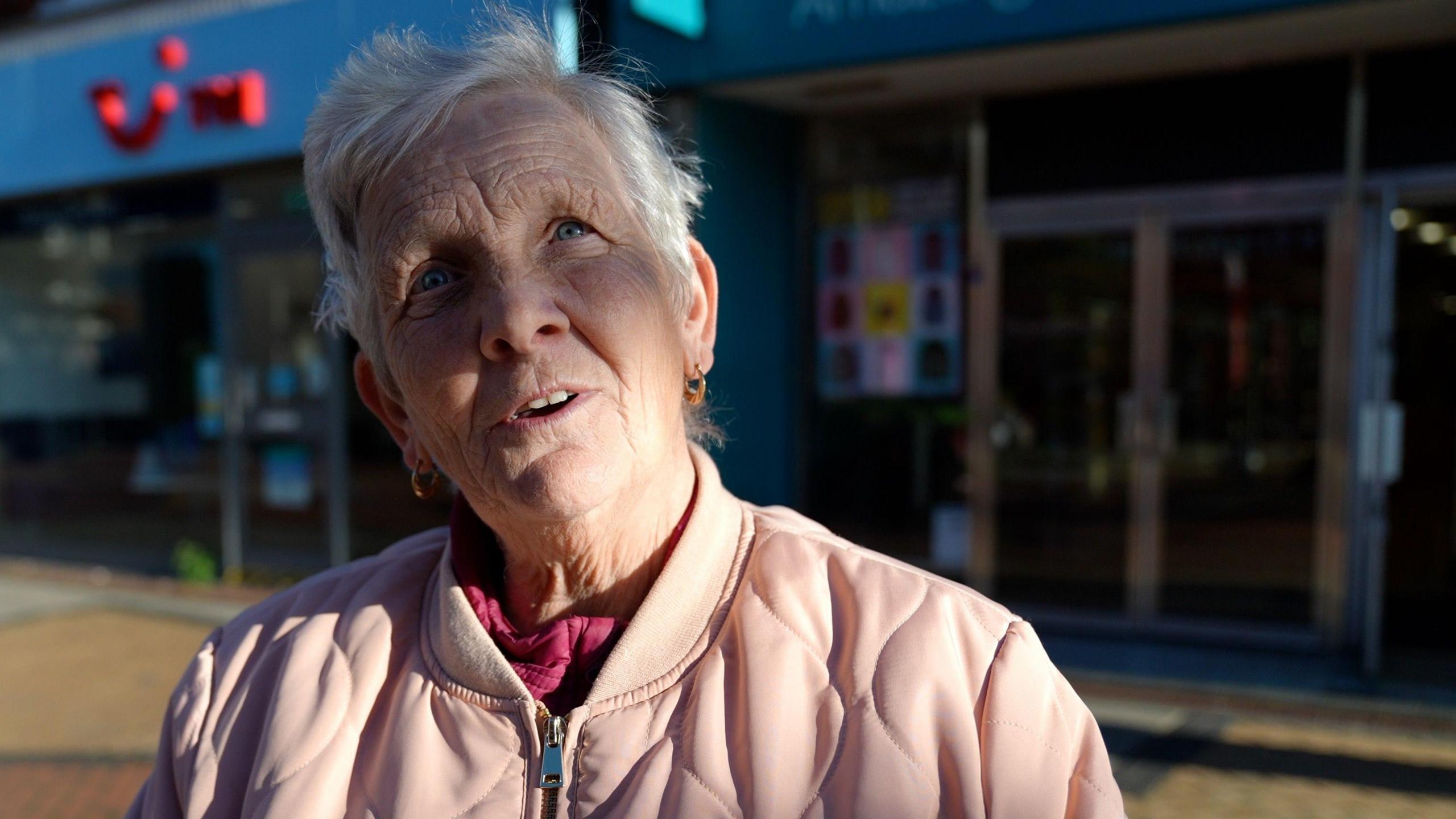
Celia Todd says she no longer enjoys shopping in the town centre
Leaders of the vaping and gambling industries have pushed back, external against the idea that they are "unwanted shops", saying they bring economic benefits to communities and, in the case of the former, are helping "millions" move away from smoking.
But talking to people in Scunthorpe town centre, there is no doubt that the government rhetoric has struck a chord.
Celia Todd, 71, misses the high street glory days of department stores and retailers such as BHS.
"I don't like it this way it is," she says. "I liked it the way it was – Marks & Spencer, Boots, the old Woolworths."
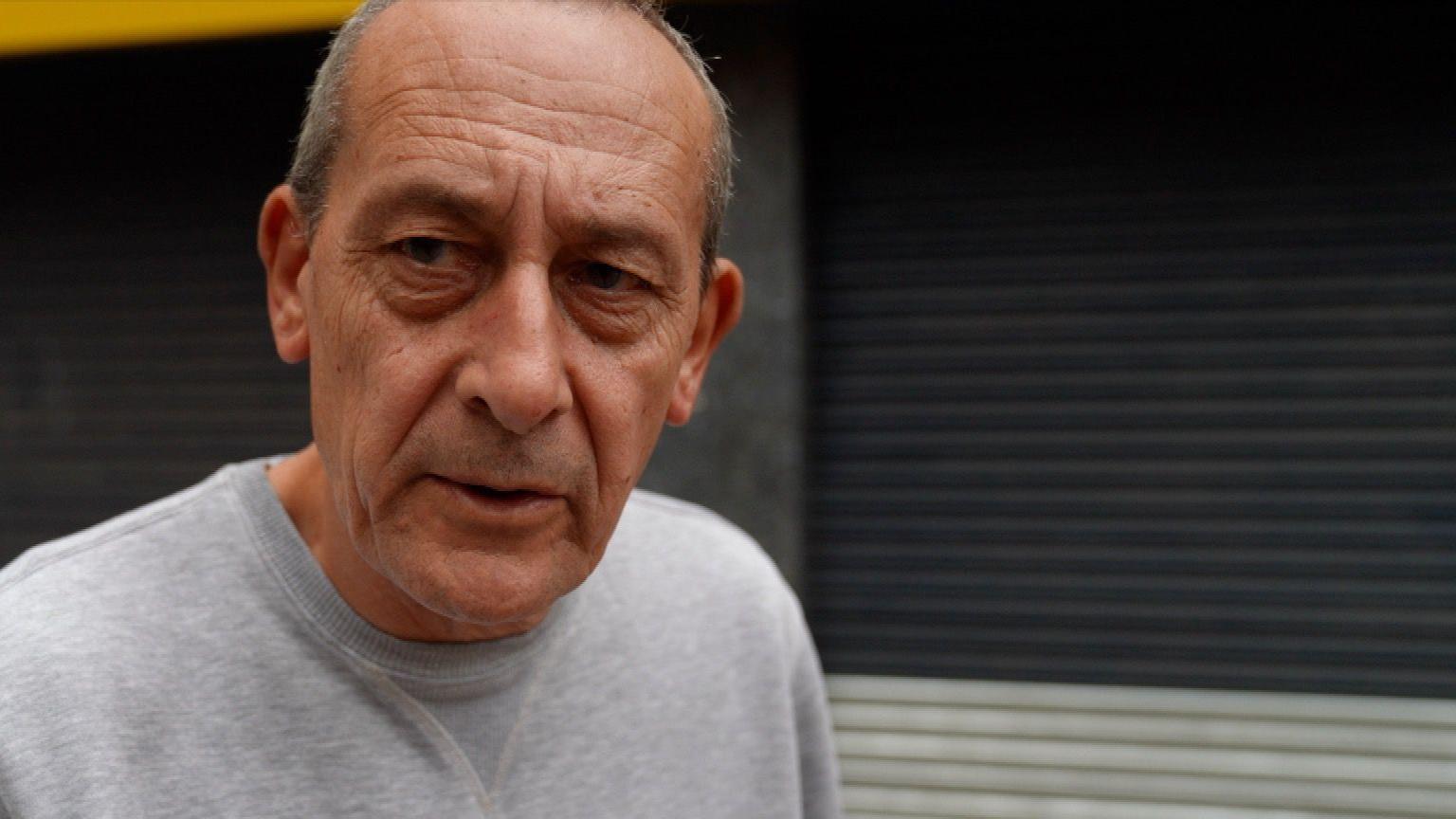
Alan Oliver says there is little to bring people into Scunthorpe town centre
While their return might feel unlikely, Alan Oliver, 64, believes giving people the right to choose is a good start.
"Let the local people have their say. Right now there's nothing here for them, just charity shops, vape shops or barbers," he says. "We need more good-quality shops."
However, John Foster, 60, who stops to talk to me outside Primark, sums up both the general mood and the dilemma.
"There's too many types of these shops," he says, "But, is it better to have them than empty shops?"
Tackling the latter issue will require the government to do more to get costs down and premises rented out, argues the Conservative leader of North Lincolnshire Council.
"What we want from a high street is a range of businesses doing different things," councillor Rob Waltham says.
"The challenge is that the tax regime is against businesses.
"So the government can't just change this [powers to ban shops] and think that will fix the high street. They have to make it more attractive for businesses to set up in the first place."
Listen to highlights from Lincolnshire on BBC Sounds, watch the latest episode of Look North or tell us about a story you think we should be covering here, external.
Download the BBC News app from the App Store, external for iPhone and iPad or Google Play, external for Android devices
- Published8 September
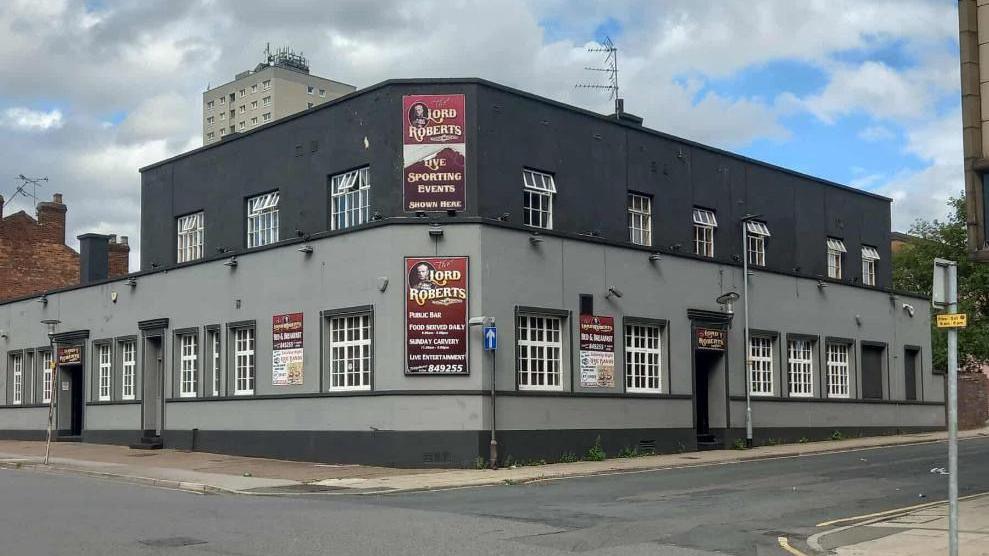
- Published18 October 2024
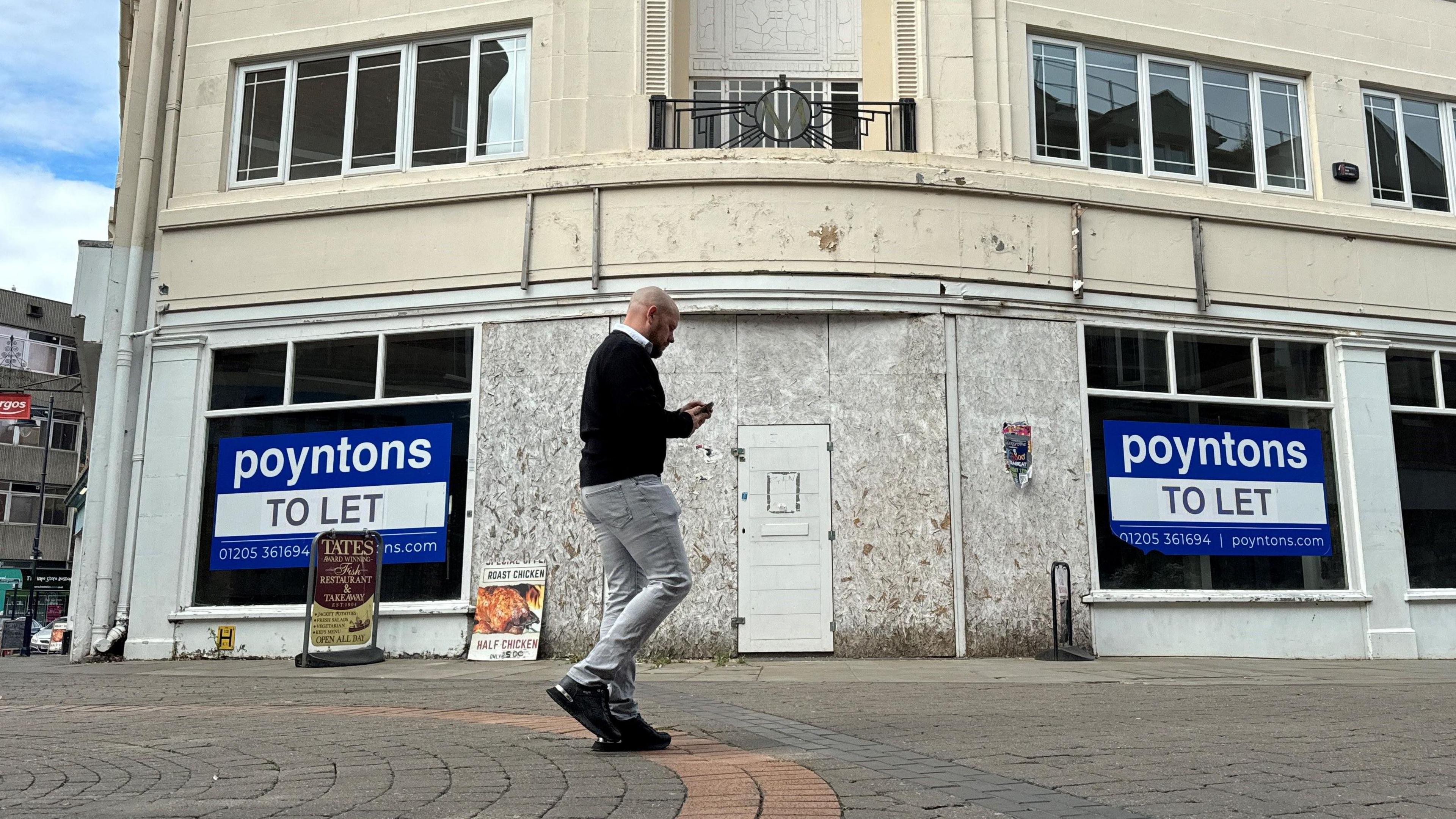
- Published25 August
